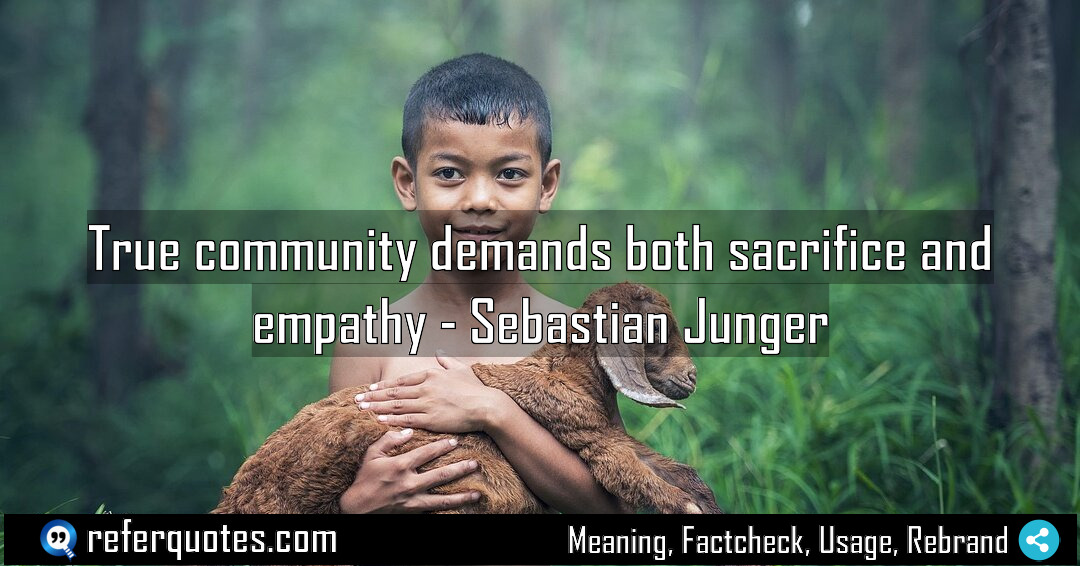True community demands both sacrifice and empathy isn’t just a nice idea—it’s the operating system for real human connection. It explains why some groups thrive while others just… exist. Let’s break down why this principle is so powerful.
Share Image Quote:Table of Contents
Meaning
At its core, this means that a real, bonded group isn’t formed by convenience, but by a shared willingness to give something up for each other and to genuinely understand each other’s struggles.
Explanation
Okay, so here’s the thing I’ve seen play out again and again. We often think of community as just a group of people living near each other or sharing an interest. But that’s just proximity. The magic, the real glue, is what Junger is talking about.
Think of sacrifice as the action. It’s the tangible cost. You give up your time, your resources, maybe even your own immediate comfort for the good of the group. It’s the “proof” of your commitment.
And empathy is the feeling, the understanding. It’s what tells you *what* to sacrifice and *why* it matters. It’s the emotional intelligence that connects you to the other person’s need.
You can’t have one without the other. Sacrifice without empathy is just empty duty, a transaction. And empathy without sacrifice is just sentiment, a feeling that never translates into anything real. True community, the kind that can withstand real pressure, lives in the space where these two forces meet.
Quote Summary
| Context | Attributes |
|---|---|
| Original Language | English (3668) |
| Category | Community (61) |
| Topics | empathy (143), sacrifice (12), unity (20) |
| Literary Style | concise (408), philosophical (434) |
| Emotion / Mood | calm (491), inspiring (392) |
| Overall Quote Score | 82 (297) |
Origin & Factcheck
This quote comes straight from Sebastian Junger’s 2016 book, Tribe: On Homecoming and Belonging. It’s a work of non-fiction that really digs into modern society’s loneliness crisis. You sometimes see this sentiment floating around unattributed on social media, but its home is definitely in Junger’s research.
Attribution Summary
| Context | Attributes |
|---|---|
| Author | Sebastian Junger (60) |
| Source Type | Book (4032) |
| Source/Book Name | Tribe: On Homecoming and Belonging (60) |
| Origin Timeperiod | 21st Century (1892) |
| Original Language | English (3668) |
| Authenticity | Verified (4032) |
Author Bio
Sebastian Junger is born in Belmont, United States on 1962. He studied cultural anthropology at Wesleyan University and built his career in journalism. He is the one of the leading contributor and editor at Vanity Fair. Along with Tim Hetherington, he codirected Restrepo(2010 American documentary), which went on to win Sundance’s Grand Jury Prize and an Academy Award nomination. The Sebastian Junger book list includes The Perfect Storm, Tribe, A Death in Belmont, Freedom, War, and In My Time of Dying, each marked by distinct writing style
| Official Website
Where is this quotation located?
| Quotation | True community demands both sacrifice and empathy |
| Book Details | Publication Year: 2016; ISBN: 978-1-4555-6638-6; Last edition: 2017; Number of pages: 192. |
| Where is it? | Chapter 4: Calling Home, Approximate page 130 from 2017 edition |
